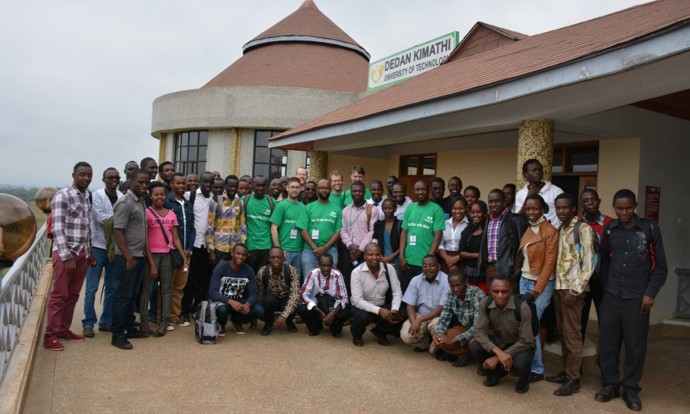How Africa Can Benefit from the Data Revolution
By Tara Newton, Communications Associate, BID Initiative
Oct 7, 2015

The data science in Africa workshop highlighted the benefits of technology in creating modern infrastructure. Photo: DeKUT.
Implementing a national electronic immunization system is such a huge undertaking that even many high-income, developed countries have not been successful. In a recent article in The Guardian, “How Africa can benefit from the Data Revolution,” the author, Neil Lawrence, discusses how modern infrastructure can solve challenges of missing infrastructure. To put this into context, in Tanzania, we are implementing a national electronic immunization registry and doing so would have been more challenging if we had to overhaul and integrate various legacy electronic systems.
Africa is more connected than ever with increased access to internet in health facilities and a higher penetration of mobile phones. The article claims, “African countries may be coming late to the information revolution, but they will be able to exploit the lessons learned from those that have trodden the path before.”
There is an increased focus on data worldwide: generating data, the movement of data and using data. Earlier this year, researchers from across the region came together for Africa’s first workshop on data science at Dedan Kimathi University of Technology to discuss local software solutions or “African apps to solve African problems.” Ideas from the workshop included the use of social media for monitoring the evolution and effects of Ebola in west Africa (Nuri Pashwani, IBM Research Africa), telecommunications data for inferring the source and spread of a typhoid outbreak in Kampala (UN Pulse Lab, Kampala), among others. The key theme throughout the solutions is that they are locally driven using an already established network of mobile phone users.
The article continues with the idea of “a distributed health system which relies on mobile phones for access to the health record.” Mobile devices are key for the BID Initiative to connect rural facilities and communities with the new electronic immunization registry. Births can be registered in the system using SMS from village leaders and reports can be uploaded to the system via mobile phones, as we saw with MACEPA in Zambia, so the information will be visible at all levels of the health system. The author states, “The hardware infrastructure in Africa would already support this, the investment has already been made. It is the investment in people and ideas that is now needed.” This notion is exactly on par with our mission to create a data use culture. You can have all the technologies in the world to help collect and send data, but if people don’t know how to use the technologies or understand the value in data use, then our efforts will fail.
This is an exciting time in Africa and we hope our approach and the interventions we develop will continue to resonate with the broader global community.
